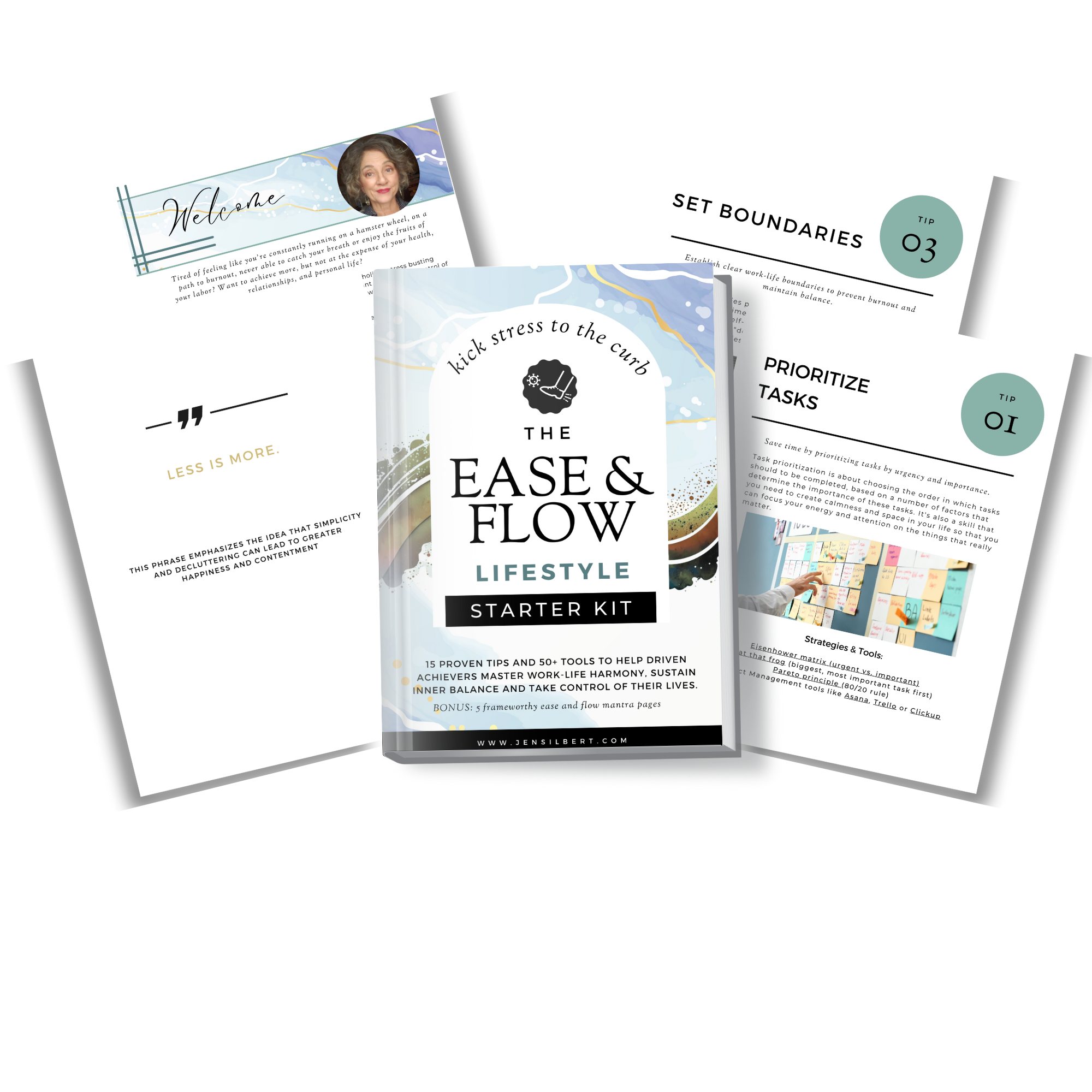You know that white-knuckle, pedal-to-the-metal, full-throttle drive you get when you're relentlessly chasing your goals?
Your to-do list looks like a novel, deadlines are dancing around like fireflies, and you're tossing so many balls in the air, you could put a circus juggler to shame.
Then, out of nowhere, oops! A fumble, a stumble, a tiny ball slips through your hands.
Suddenly, that nagging little voice in your head takes center stage, ready for its Broadway solo, belting out a critique that could shatter glass.
"But, hey," you might argue, "if I don’t push myself, if I don't lay on the pressure, how will anything get done?"
This is the life of a self-sabotaging achiever.
But, it does not have to be your go-to position for the future.
In today's blog, let's:
- Unravel the true meaning of self-compassion and its importance.
- Discover the tangible benefits of embracing self-compassion in our personal and professional lives.
- Understand the repercussions of a lack of self-compassion on our well-being and success.
- Dive into real-life examples of situations with and without self-compassion.
- Equip ourselves with practical tips and exercises to start fostering self-compassion in our everyday lives.
Join us as we explore self-compassion and how it can transform your approach to challenges and get different results than beating yourself up.
Let's get started!

The Meaning of Self-Compassion
Self-compassion is treating yourself with the same kindness, care, and understanding that you would offer to a good friend who's having a rough time. It involves being gentle with ourselves when we fail or make mistakes, rather than being critical and harsh. Self-compassion is not about ignoring our flaws or becoming self-indulgent. It's about accepting our humanity, complete with all its imperfections.
But, in a culture that often equates self-criticism with self-improvement, isn't self-compassion just another term for self-pity or laziness? Absolutely not. Dr. Kristin Neff, a pioneer in the field, explains that self-compassion consists of three core elements:
- Self-kindness: being understanding towards ourselves, rather than judgmental.
- Common humanity: recognizing that everyone makes mistakes and has their struggles – we are not alone in our experience.
- Mindfulness: holding our pain and personal failures in balanced awareness, rather than ignoring or exaggerating them.
Self-compassion is more than just being 'nice' to yourself. It’s about acknowledging your humanity and allowing yourself the space to be imperfect.
It's not only okay to make mistakes - it's human! Everyone makes them. No one, not even the most successful people you can think of, navigates through life without stumbling or veering off course at times.
In a practical sense, self-compassion means responding to your own failures, mistakes, and shortcomings with the same kindness and understanding you'd offer to a good friend in a similar situation.
Imagine a friend comes to you, sharing how they've messed up or failed at something they were trying to achieve. Would you berate them, belittle them, tell them they’re not good enough? Absolutely not! You’d likely empathize, encourage, and help them see the lessons in the setback. That's exactly what practicing self-compassion looks like.
The Power of Self-Compassion: Tangible Benefits
Research in psychology over the last decade has uncovered remarkable benefits of self-compassion. Studies show that self-compassion can lead to increased happiness, optimism, and positive emotions. It boosts motivation, enhances self-improvement efforts, and even contributes to better physical health.
Contrary to what many believe, self-compassion doesn't reduce your drive to excel. It enhances it.
Self-compassion allows us to cope with setbacks, disappointments, and failures more effectively, fostering resilience and emotional well-being. Rather than spiraling into negativity or being paralyzed by criticism, self-compassion helps us maintain a balanced perspective.
Self-Compassion does not reduce your drive to excel. It enhances it.
Here's an example:
Let's say you had a presentation at work that didn't go well. Instead of berating yourself and falling into a loop of self-criticism, self-compassion allows you to recognize that everyone has off days, it's part of being human. You give yourself permission to learn from this experience without dwelling on it excessively.
This healthier mindset allows you to move forward, enhancing your resilience and capacity to bounce back.

The Absence of Self-Compassion: A Toll on Well-Being
But what does a lack of self-compassion look like?
It's the voice inside your head that says you're not working hard enough, not learning quickly enough, not doing enough. It's the constant feeling of being your worst critic, the continuous pressure to perform flawlessly. It's ignoring your need for rest and working through exhaustion, simply because you don't want to appear weak.
In essence, the absence of self-compassion is a breeding ground for stress, burnout, anxiety, and decreased satisfaction in life.
This relentless self-criticism and the inability to show ourselves grace can even impact our physical health, leading to chronic stress and related health issues.
The absence of self-compassion is a breeding ground for stress, burnout, anxiety, and decreased satisfaction in life.
Try this instead....
Rather than telling yourself, "I can't believe I made such a stupid mistake. I'm always messing up," try reframing the situation with self-compassion.
Pause, take a deep breath, and say something like, "Okay, I messed up. That's frustrating, but it's also human. Everyone makes mistakes, including me. What can I learn from this situation? How can I use this experience to grow and do better next time?"
By doing this, you're not denying the mistake or trying to sugarcoat it. You're acknowledging it honestly, but without the harsh judgment. You're also turning it into a learning opportunity, which not only reduces the negative emotional impact but also helps you build resilience for the future.
Remember, the goal is not to be perfect but to be kind to yourself, understanding that growth comes with its fair share of stumbling blocks.

Self-Compassion in Action: Practical Tips
Embracing self-compassion may feel counterintuitive, especially if you're used to being your harshest critic. But remember, it's a skill that can be learned and cultivated. Here are some practical tips to help you get started:
- Practice mindfulness: Mindfulness allows us to observe our feelings without judgment. Start by recognizing your self-critical voice and acknowledge it without engaging with it. Apps like Headspace offer guided meditations specifically focused on developing self-compassion.
- Reframe your self-talk: Instead of engaging in self-criticism, ask yourself what you would say to a friend in the same situation. Treat your failures and struggles with the same kindness and understanding.
- Develop a self-compassion mantra: Having a set of phrases that you can turn to in challenging times can be a helpful way to evoke self-compassion. Neff provides examples on her website.
- Write a self-compassionate letter: When faced with a situation that causes you stress or feelings of inadequacy, write a letter to yourself expressing understanding, love, and acceptance.
Remember, embracing self-compassion doesn't mean abandoning your ambitions or to stop striving for success.
It's about acknowledging that the path to achievement isn't linear and treating yourself with kindness and understanding along the journey.
High achievers are often accustomed to pushing themselves relentlessly.
But imagine what you could accomplish if you became your own biggest supporter, rather than your harshest critic? Self-compassion could be the unexpected ally in your journey towards success. And who knows, it might even make the journey a lot more enjoyable!
Start practicing self-compassion today and see the transformative impact it can have on your life and your achievements. After all, you owe it to yourself to be as kind to you as you would be to others. Because you, my friend, are worth it.
Want to conquer stress and make room for more harmony in life?
Get the FREE 23-page Ease and Flow Lifestyle Starter Kit, a holistic stress-busting guide with 15 proven tips and 50+ linked tools to help driven achievers master work-life harmony, sustain inner balance and take control of their lives. Get it here.

